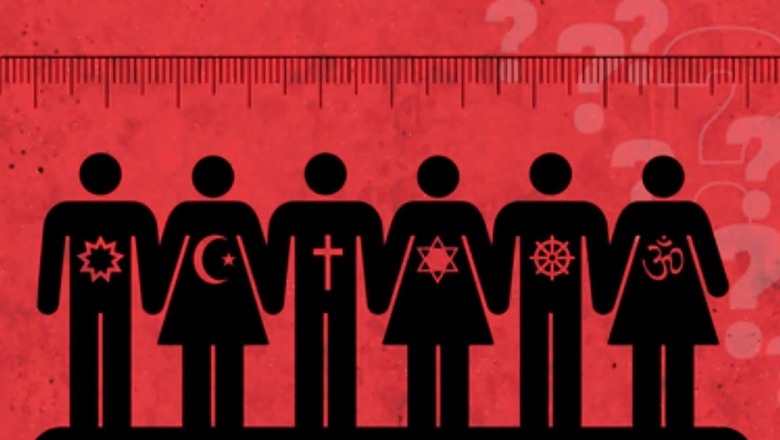
views
The debate over Uniform Civil Code (UCC) has gathered momentum now with Uttarakhand set to implement the law, and the Law Commission to submit a report after the process of public consultations ends on July 13.
According to reports, the law ministry officials said they are waiting for the 22nd Law Commission’s report before taking any step in that direction.
Although several Congress leaders have questioned the Centre over its timing to implement Uniform Civil Code in the country, and also pointed out that it may not be acceptable to tribals and northeast, there are a few from the Opposition who have backed the law.
Vikramaditya Singh, son of late Himachal Pradesh Chief Minister Virbhadra Singh, said Congress represents all segments of India, and it believes in unity in diversity. So, before bringing any law, no one should feel that the law is against them. BJP has to take everybody on board. “Whenever UCC will come, we will support it,” Vikramaditya had said.
Bahujan Samaj Party chief Mayawati said she was not against UCC, but is unhappy how BJP is politicising the issue. “Our party (BSP) is not against the implementation of UCC but we do not support the way BJP is trying to implement Uniform Civil Code in the country. It is not right to politicise this issue and forcefully implement UCC in the country…. The UCC will not weaken the country but strengthen the country and it will also lead to communal harmony.”
Kerala governor Arif Mohammed Khan said, “My view on the UCC is the view of the Constitution. As far as the principle of having a common code across the country goes, how can anyone oppose it? If you are opposing it, you are showing that you have no confidence in the Constitution.”
The Supreme Court in Shah Bano case had said, “A common civil code will help the cause of national integration by removing disparate loyalties to law which have conflicting ideologies.”
Minister for State for Health and Family Welfare SP Singh Baghel said, “When the prime minister took a decision for the welfare of the people, including distributing free food grains to 80 crore people and gas connections to 9 crore people, there were no elections. This was done purely to keep the interest of the Indian citizens in mind. The only interest of the government is to work for the nation and the welfare of the poor and downtrodden,” he said.
Supreme Court lawyer Mahesh Jethmalani said, “I am a strong believer in a Uniform Civil Code. Though we’re a diverse country, all religions shall agree on a common family procedure… It’s rubbish that it’s against the minorities. Congressmen who oppose the UCC should read the constituent assembly debate.”
Senior advocate Harish Salve said, “I have been a votary for introduction of UCC. Does it affect anyone’s religion? No, it gives you a choice if you want to follow a secular law or not…You’ll have the choice of which law applies to you… Why will it be bad for Muslims? It will give a Muslim girl the choice to get a divorce, which is a concept alien to their personal law.”
The book ‘Bharatiya Samvidhan: Ankahi Kahani’ claims that former Prime Minister Pandit Jawaharlal Nehru opposed UCC. “Freedom fighter and Mumbai Mayor Meenu Masani had first proposed the formulation of UCC in 1947 before the assembly. However, Nehru shot it down.” Meenu Masani, a Parsi, supported the UCC, and said, “I am speaking as an Indian”.
What is UCC?
It is a proposal according to which one law would be applicable to all religious communities in matters of marriage, divorce, inheritance, adoption and maintenance. India has a uniform or one set of ‘criminal code’ for all its citizens but doesn’t have uniform civil law.
The UCC finds mention in Article 44 of Part IV of Constitution; the part contains Directive Principle of State Policy, which cannot be forced upon the state, but act as guiding principles.
The idea behind UCC is to bring all communities equal under one umbrella law as some provisions of personal laws are considered unequal.
















Comments
0 comment